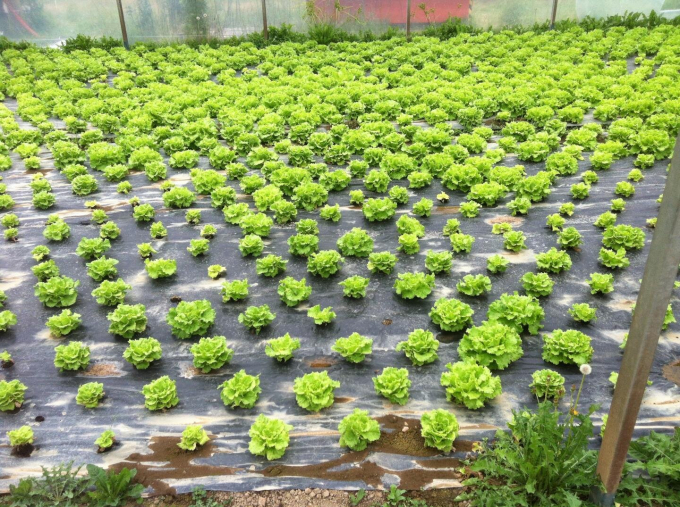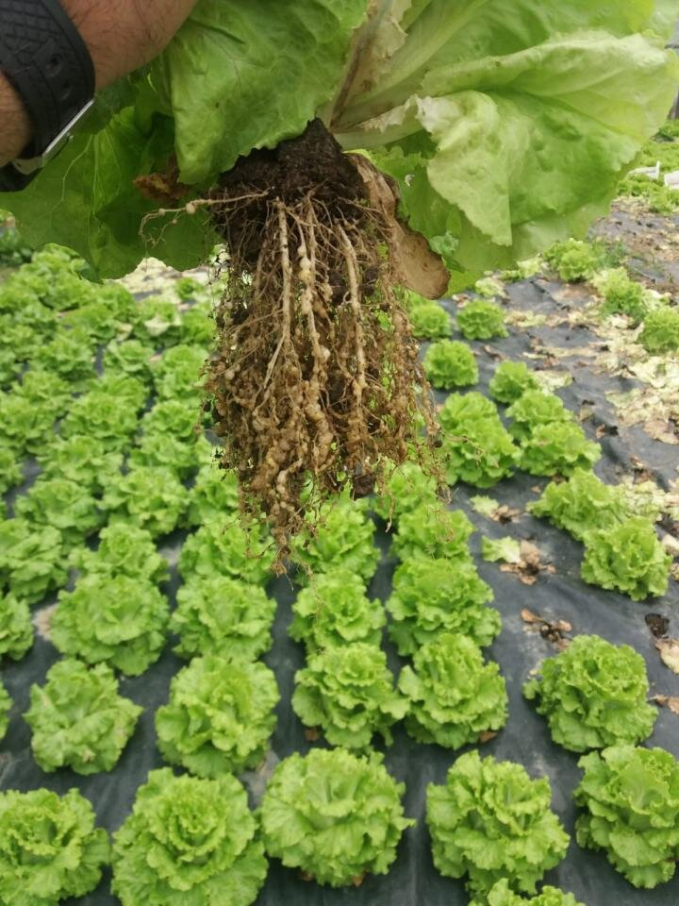November 25, 2025 | 21:26 GMT +7
November 25, 2025 | 21:26 GMT +7
Hotline: 0913.378.918
November 25, 2025 | 21:26 GMT +7
Hotline: 0913.378.918

A productive lettuce yield following the researchers' new biodisinfestation method. Credit: Maite Gandariasbeitia et al
Now, in an effort to reduce waste from the agricultural industry and reduce the amounts of harmful chemicals used, researchers have investigated using organic byproducts from beer production and farming as a potential method to disinfest soils, preserve healthy soil microorganisms and increase crop yields.
In this study published to Frontiers in Sustainable Food Systems, researchers from the Neiker Basque Institute for Agricultural Research and Development in Spain investigated using agricultural by-products rapeseed cake and beer bagasse (spent beer grains), along with fresh cow manure as two organic biodisinfestation treatments. The lead author Maite Gandariasbeitia explains: "Rapeseed cake and beer bagasse are two potential organic treatments which have shown really positive results in previous studies.
"Their high nitrogen content promotes the activity of beneficial microorganisms in the soil, which helps to break down organic matter like manure and kill off nematodes and other parasites which damage crops."
Gandariasbeitia also highlights how nematodes can negatively impact crop yields: "Root-knot nematodes are a type of common soil parasite which penetrate a plant's root tissue to lay their eggs and this activity causes galls, or knot-like swellings, to form on the root," she says.
"This damage negatively impacts root development and means the crop can't take up nutrients efficiently, slowing plant growth and ultimately, leading to reduced yields for farmers."
To disinfest the soil and reduce these nematode populations, beer bagasse and rapeseed cake were incorporated into the soil with fresh cow manure as a potential organic treatment. After the first crop post-treatment, the researchers found a significant reduction in galling on plant roots.
Next steps for research
Plots also demonstrated increased yields by around 15% compared to the control plots after one year. Additionally, the organic matter treatment boosted populations of beneficial microorganisms in the soils, as demonstrated by a significantly higher soil respiration rate.

Root galling caused by root-knot nematode infestation. Credit: Maite Gandariasbeitia et al
The study demonstrates that these agricultural byproducts are an effective treatment for root-knot nematodes and other soil parasites, achieving higher crop yields as well as promoting sustainable food systems to reduce waste from the agricultural industry. Gandariasbeitia highlights that further research is needed to explore other potential organic treatments that could be used in a similar way: "There are still many questions to answer so that we can gain a better understanding of what happens in the soil during and after these biodisinfestation treatments.
"This can help us to really elucidate what characteristics we should be looking for in other potential organic treatments to be effective in tackling soil parasite populations."
(Frontier)

(VAN) Brazil's COP30 presidency pushed through a compromise climate deal on Saturday that would boost finance for poor nations coping with global warming but that omitted any mention of the fossil fuels driving it.

(VAN) Poultry farmers in the UK have been warned that they could face one of the worst winters yet for bird flu.

(VAN) Prices of main-crop paddy have risen sharply, with jasmine rice hitting 16,100 baht per tonne — the highest level in years.

(VAN) In Brazil, FAO unveiled a series of reports and initiatives showing how sustainable agrifood systems are a solution to the climate crisis.

(VAN) With names like neodymium and dysprosium, rare-earth elements sound exotic — and their perceived scarcity has only added to the mystique.

(VAN) In a new study published in Trends in Biotechnology, researchers used a gene-editing technology called CRISPR to increase a fungus's production efficiency and cut its production-related environmental impact by as much as 61%- all without adding any foreign DNA.

(VAN) A top official in Beijing’s Cop delegation says China is committed to clean energy – but US’s absence is a problem.